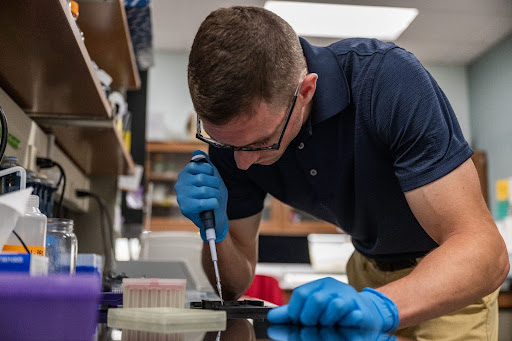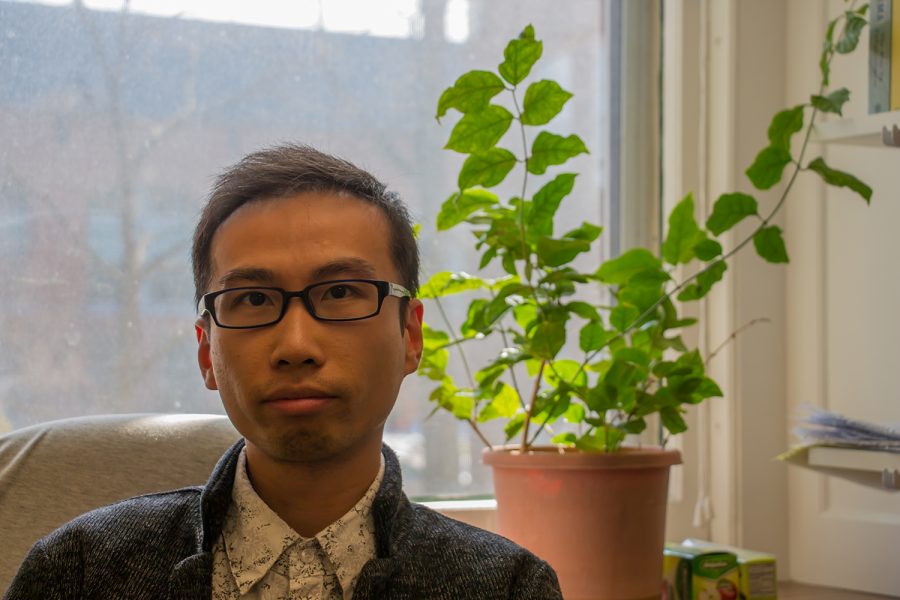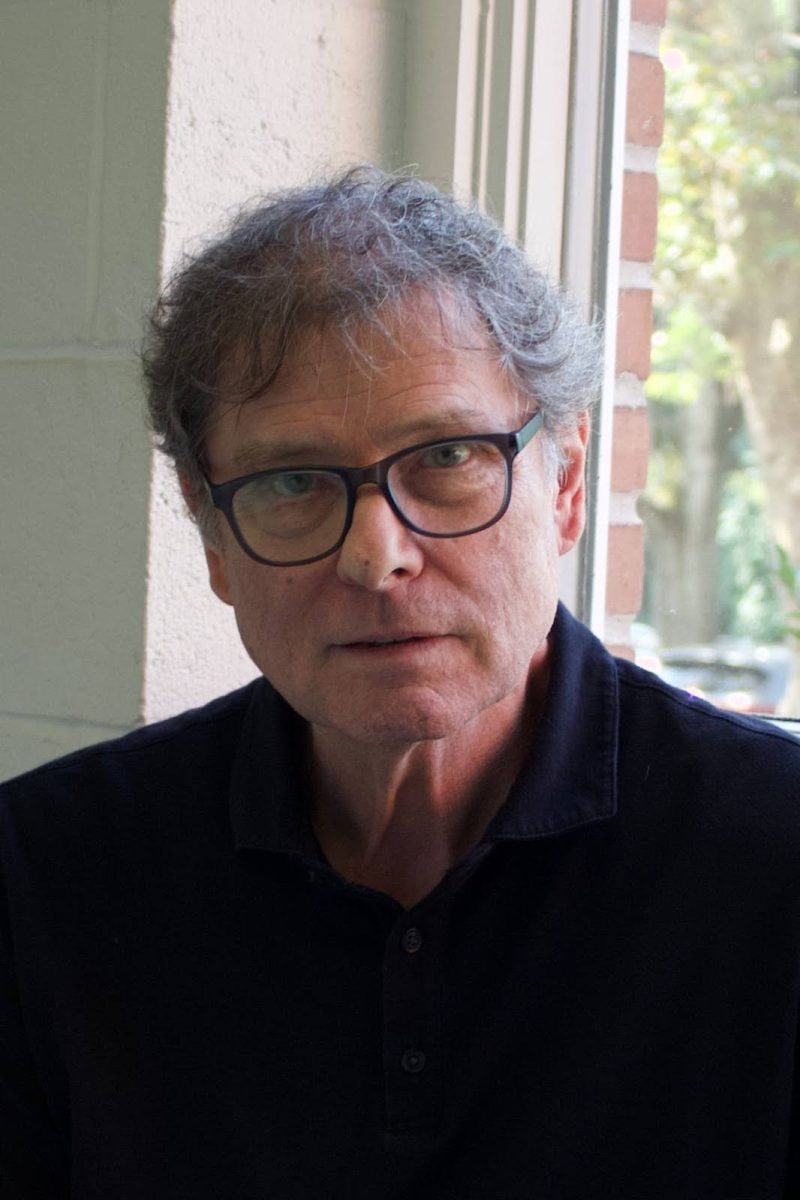Cancer is the emperor of disease and is one of the scariest and most terrifying things a person can experience. This disease has no known cure, and the main reason behind that fact is that cancer is so specialized and widespread in the body.
Associate professor of Biology at Moravian Dr. Anastasia Thévenin and her team aim to study the underlying roots of this disease by focusing on gap junctions in cells. These are channels found between cells that allow the diffusion (passing through) of ions and small molecules across cells. They are also important for cell-to-cell communication, cell homeostasis (body regulation), and tissue function.
Thévenin teaches cell and molecular biology, as well as biochemistry at Moravian. She earned her B.S. in biomedical science from Lynchburg College and her Ph.D. in chemistry and biochemistry from the University of Delaware. She has a fascination with proteins in particular which is what her research focuses on.
Thévenin’s team consists of students who have previous experience in biochemistry through the cell and molecular biology class and biochemistry. Students in the course –Ryan Kulp ‘25, a chemistry major, Hailey Belverio ‘25, a Biology and Music double major, and Abby Angelisantj ‘25, a Nursing major – have shown dedication and commitment when it comes to working in the lab.

Thévenin’s research. is geared toward Gap Junction membrane proteins called connexins (Cx), more specifically connexin 43. The phosphorylation (which means the addition of a phosphate group) of connexin 43 is needed to regulate the Gap Junction function. There are various different Kinases that can bind to Cx43 which can change the function of the protein.
In Thévenin’s research, however, there is another player. An oncogene called SRC. Oncogenes are genes that have the potential to cause cancer. In this case, when SRC binds to Cx43, it basically gives a go-ahead to the cell to mutate and cause cancer. The tumor suppressor genes that bind to Cx43 are there to inhibit SRC and stop the cell from mutating.
There is a constant tug-of-war between SRC and tumor suppressor genes. What Thévenin aims to figure out which tumor suppressor genes, when bound to Cx43, can inhibit SRC and allow the cell to divide normally.








